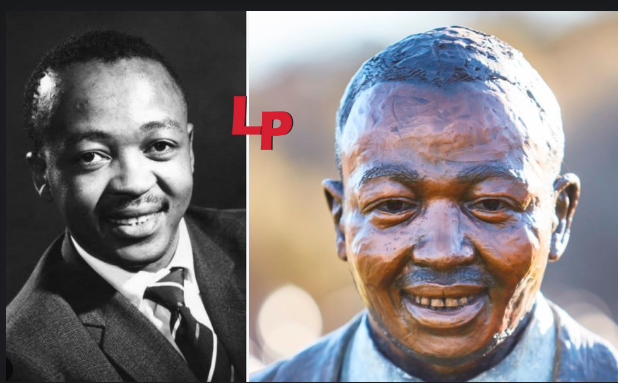Duma Nokwe Biography – Philemon Pearce Dumasile Nokwe, widely known as Duma Nokwe, was a prominent South African political activist and a key figure in the African National Congress (ANC). Born on 13 May 1927 in Evaton, Nokwe’s life was marked by his relentless struggle against apartheid and his significant contributions to South Africa’s liberation movement.
In this article we are going to talk about the biography, career, notable works of Duma Nokwe so read the article till the end.
Duma Nokwe Biography
| Field | Details |
|---|---|
| Full Name | Philemon Pearce Dumasile Nokwe OMSG |
| Known As | Duma Nokwe |
| Date of Birth | 13 May 1927 |
| Place of Birth | Evaton, South Africa |
| Date of Death | 12 January 1978 |
| Age at Death | 50 years |
| Education | St. Peter’s School, University of Fort Hare |
| Political Involvement | ANC Youth League, Secretary-General of ANC (1958-1969) |
| Profession | Political Activist, Barrister |
| Spouse | Not Disclosed |
| Contact Details | Not Disclosed |
Early Life and Education
Duma Nokwe was born in Evaton, a township in South Africa. He pursued his education at St. Peter’s School in Johannesburg and later attended the University of Fort Hare, where he earned a BSc degree and a diploma in education. After graduating, Nokwe began his career as a teacher at Krugersdorp High School.
Political Awakening and Early Activism
Nokwe’s political journey began during his university days when he became actively involved in the ANC Youth League. Serving as the secretary of the Youth League from 1953 to 1958, he played a crucial role in mobilizing young South Africans against apartheid. His activism led to his imprisonment for participating in the 1952 Defiance Campaign, during which he entered Germiston location without a permit. Following his release from prison, the Transvaal Education Department dismissed him from his teaching position.
International Exposure and Continued Activism
In 1953, Nokwe joined the South African delegation to the World Youth Festival in Bucharest. This trip also took him to the Soviet Union, China, and Britain, where he gathered insights and experiences that he later shared extensively upon his return to South Africa. However, his outspoken nature led to a banning and restriction order in July 1954, silencing him from public discourse.
Transition to Law and Continued Struggles
With his teaching career thwarted, Nokwe turned to the study of law. In 1956, he became the first African barrister to be admitted to the Transvaal Supreme Court. However, the Native Affairs Department prevented him from practicing law effectively, relegating him to an office in an African township rather than in Johannesburg’s legal center. Despite these challenges, Nokwe remained deeply involved in political activism.
Treason Trial and ANC Leadership
In December 1956, Nokwe, along with 155 other prominent ANC members, was arrested and charged with treason. Although many of the defendants were acquitted by mid-1959, Nokwe’s trial continued until April 1961. During this tumultuous period, he faced numerous arrests, banning orders, and even physical assaults by the police. Despite these adversities, he was elected as the secretary-general of the ANC in 1958, a position he held until 1969.
Contribution to the Liberation Movement
As the ANC’s secretary-general, Nokwe was instrumental in organizing and overseeing various campaigns and demonstrations throughout the late 1950s and early 1960s. His efforts significantly contributed to the growth of the ANC’s membership and its prominence as the leading organization in the fight against apartheid. Nokwe’s leadership was crucial during the 1960 state of emergency, during which he was jailed for five months. Upon his release, he focused on reorganizing the ANC and played a pivotal role in the all-in African conference at Maritzburg in 1961, marking Nelson Mandela’s public reappearance.
Personal Life and Legacy
Details about Duma Nokwe’s personal life, including information about his wife, remain undisclosed. Despite the personal and professional challenges he faced, Nokwe’s commitment to the liberation struggle never wavered. He passed away in Lusaka on 12 January 1978 at the age of 50. His legacy as a dedicated activist and leader in the fight against apartheid continues to inspire future generations.
FAQs
Who was Duma Nokwe?
Duma Nokwe was a South African political activist and the secretary-general of the ANC from 1958 to 1969.
Where was Duma Nokwe born?
He was born in Evaton, South Africa.
What was Duma Nokwe’s role in the ANC?
He served as the secretary-general of the ANC and played a significant role in various anti-apartheid campaigns.
When did Duma Nokwe die?
Duma Nokwe died on 12 January 1978.
Did Duma Nokwe have a wife?
Details about his wife are not disclosed.
What were Duma Nokwe’s educational qualifications?
He had a BSc degree and a diploma in education from the University of Fort Hare.
Conclusion
Duma Nokwe’s life was a testament to his unwavering commitment to the fight against apartheid in South Africa. From his early days as a student activist to his role as the ANC’s secretary-general, Nokwe’s contributions were pivotal in shaping the course of South Africa’s liberation movement. Despite facing numerous challenges, his dedication and leadership continue to inspire the ongoing struggle for justice and equality.
